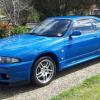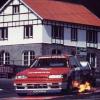My R34 Gtr Tuned Yesterday At Dart Automotive
Announcements
-
Similar Content
-
Latest Posts
-
Aye, it has been pretty good since the shift ~ I just want access to the wiki ..again.. (now the mediawiki stuff has been updated), to get it all straightened out with consistent presentation (I talked to Session about it, turns out the mediawiki version was largely at fault..and pages created with older versions, etc etc)...I've basically given up asking, never get a reply...bit sad...but it is what it is.
-
Had a look at RHD Japan, I used them a lot back in the day and never had any troubles with them. The EUROSTER II CRUZ Reclinable Seats without the arm rests seem like a good seat for the street and comfort. $4,300 delivered with rails seems like a good deal. Wonder if I can dodge the geee s teee? haha
-
This shows the bottom mount
-
Found this https://www.skylineowners.com/threads/coilover-fitting-help.143959/ Which says "there the fronts, long end goes in 1st, so nut and washer fits on short side." According to that the long, flared end goes towards the inside facing the suspension and the short side + washer goes on the outside. I installed it that way and it looks better that way as the coilover is spaced further away. There's no witness marks on the the old suspension or coilover, so it probably doesnt matter much. I'll see if i can find a photo
-
Probably just something back-end related. I'll ask if there's something to be worried about. We did move and upgrade hosting so it's more stable than before.
-









Recommended Posts
Create an account or sign in to comment
You need to be a member in order to leave a comment
Create an account
Sign up for a new account in our community. It's easy!
Register a new accountSign in
Already have an account? Sign in here.
Sign In Now